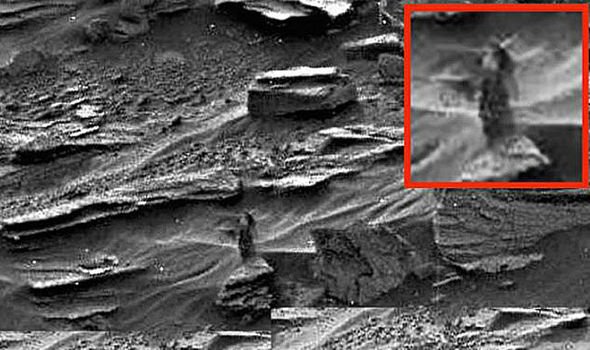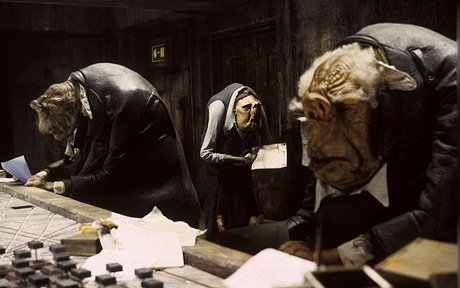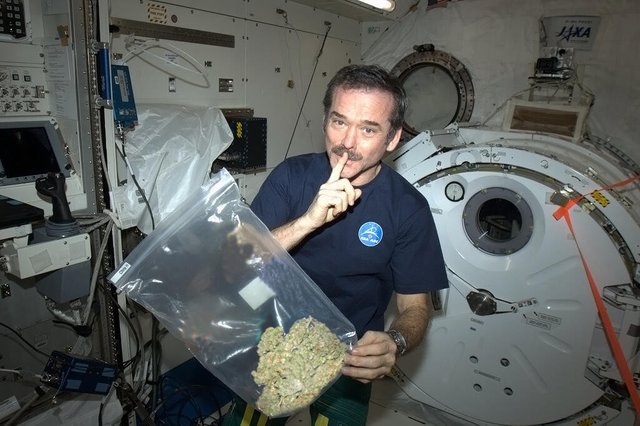Outside Earth: Unexpected Impacts of Space Colonization
Advancement of humanity into space will have a lot of foreseeable advancements: more resources, awesome view from the new penthouse, safety from extinction events, meeting that hot alien chick, adventure and discovery.

Might be the first woman on Mars. Source:express.co.uk
But with all the popular hype, there are also some impacts that can further humanity, in one way or another.
Automated Decentralized Government
With building a colony, even on a great place like Mars, one thing is sure: It is damn hard work.
No cranes, excavators or tractors will help you in the first years. Everything has to be build with lightweight tools, until more tech arrives from Earth or your mates finally finish building the metal processing plant to fuel the 3D printer. Food is scarce, there is only minimal safety margin for the next crop cycle.
During all this work, there are a few things that are unthinkable: standing in line to get your driver's license for your mars rover, feeding a guy whose only job is making rules about how you have to survive properly and importing all the paper from earth to have proper documentation.

The wrong regulations in space can and will kill people, if they obey them till the end. Source: govspace.gov.au
If there is a law in space, and there will be, because there will be dispute about scarce resource, it has to be slim, efficient and decentralized. Austrian economics know of course about the natural law. In a dispute about the proper owner of a meteorite, or a few square meters in Ceres, there needs to be a quick resolution of the conflict. This is only possible with an electronic, automated registry. On earth it is already known as Bitnation.
Until humans can resolve such disputes voluntarily amongst themselves directly, this form of government seems to be the most efficient way to handle things. This enables the colonists to have an accurate judgment with minimal time wasting.
Drugs are Legal

Chris Hadfield did it first thought. Source: Reddit
Silicon Valley is already getting a taste of the miracles of micro dosing. The intake of small amounts of illegal plants and chemicals are shown to boost productivity. This is a fact know for the indigenous tribes for a long time that for example use coca leaves to help keeping focused and ignore stress.
These abilities would be quite handy for space workers. Being in the infinite vacuum, but at the same time trapped in a tin can will be taxing on patience and concentration. A little helper here and there not only helps with getting back to normal, but also working past that.
At the same time: who will control it? Sure, the preflight inspection on earth will fish out a lot of stuff, but once in space people will be back experimenting. Supply and demand will be back holding their balance with the certainty of gravity. Not only is it difficult and expensive to check everywhere for contraband, but missing clear jurisdictions will make it a legal nightmare.
On Mars, there will definitely be that guy. He will have a small greenhouse full of weed. But once he got the "stoners" satisfied, he will sit on a lot of plant matter. There are a lot of ways to put these to good use, and earning a little more money will make him use this plant to its full efficiency. Provided nobody tries to arrest him. But then again, who got time for that?
Advances in Safe Nuclear Energy

Cheap energy means cheap everything. Source: "5th. Element" by Gaumont
Bad news for the eco-friends, but conquering space means perfecting nuclear power. With the distance to the sun, solar becomes a bigger joke than panels in rainy Germany. Wind power on Mars is useless with an atmosphere only 1% as dense as on earth. Even the global sandstorms reach wind speeds of only 60 mph. Combined with the thin atmosphere there isn't enough force to topple your lawn chair.
But an advancement in nuclear power not only means building more and safer "evil" fission reactors (which might be cleaner than you think). But also more research in fusion reactors, which give access to an abundance of energy.
Fusion reactors would then also open up the moon for mining of helium-3, and thus increase trade close to earth, which might have felt left out with all the hype about the rest of the solar system.
Thank you for reading!
If you like this article, I would be very happy if you did me a favor and resteem it!
Follow me also for more on Engineering and Technology.
If you have questions regarding the development of your product, feel free to contact me on:
Are you advertising something here? I'm confused.
Who says human kind will live on it's own in another planets? the ones not believing in God and think everything in this world is just it and nothing is out there and talk about going to planets and terraforming them so future generations can survive.
Yes as long as there is no higher power to manage us or someday judges us all then mars could be the next Home for us.